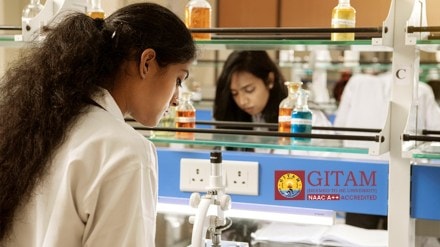In the coming 10-15 years, it is believed that India’s thriving economy will witness significant transformations in several key areas. One notable aspect is the education sector, which will undergo a major overhaul, placing great emphasis on experiential learning as its keystone. India currently lags behind in terms of adoption and penetration of autonomous systems and robotics, presenting ample opportunities for growth and development in this field, Ravi Kishore, senior director, research and innovation, Gandhi Institute of Technology and Management (GITAM) Deemed to be University, told FE Education. By keeping these factors in mind “GITAM is actively operating innovation centres, including the Centre for Autonomous Systems, Centre for Extended Reality and also setting up Centre for Aerospace Design and the Centre for Biomedical Devices. These centres are dedicated to fostering an educational and research ecosystem that empowers individuals to cultivate inventive solutions for enhancing people’s lives,” he said.
GITAM currently operates across three campuses located in Visakhapatnam, Hyderabad, and Bengaluru. The university claims to house its centres of innovation across all three campuses. Moreover, it boasts a laboratory named ‘Multidisciplinary Unit of Research on Translational Initiatives’ (MURTI) at its Visakhapatnam campus, dedicated to groundbreaking research in biotechnology, material sciences, and cancer biology.
Aerospace and Defence, Healthcare, Education, and Industrial Manufacturing are four prominent sectors that are poised to make significant impacts, requiring substantial capacity, research, and innovation. “Our innovation centres serve as fundamental building blocks, actively working towards addressing the needs and challenges within these sectors. By focusing on these key areas, we aim to foster advancements and provide the necessary support for growth and development,” Kishore, added. The term autonomous systems refers to computer-based systems that can perform tasks or make decisions without human intervention. “At GITAM’s Centre for Autonomous Systems students are actively participating in innovations by making drones and robots,” he said.
Autonomous systems rely on various technologies, such as artificial intelligence (AI), machine learning (ML), sensors and actuators. “Autonomous systems have been around for a while, but the level of autonomy they can achieve is the focus of discussion. We involve students in activities outside the classroom to encourage practical application in a laboratory setting. This hands-on approach attracts students to the latest buzzword in the field,” Vijaysekhar C, dean, Engineering, GST, GITAM, said. We have conducted various programmes focused on going beyond textbooks and encouraging students to create and innovate in our labs. By providing opportunities to work outside the classroom, we foster innovation and the potential for research and publications. “Our job is to establish a centre for autonomous systems that stimulates the interest of both students and faculty”, he added.
